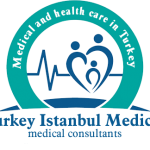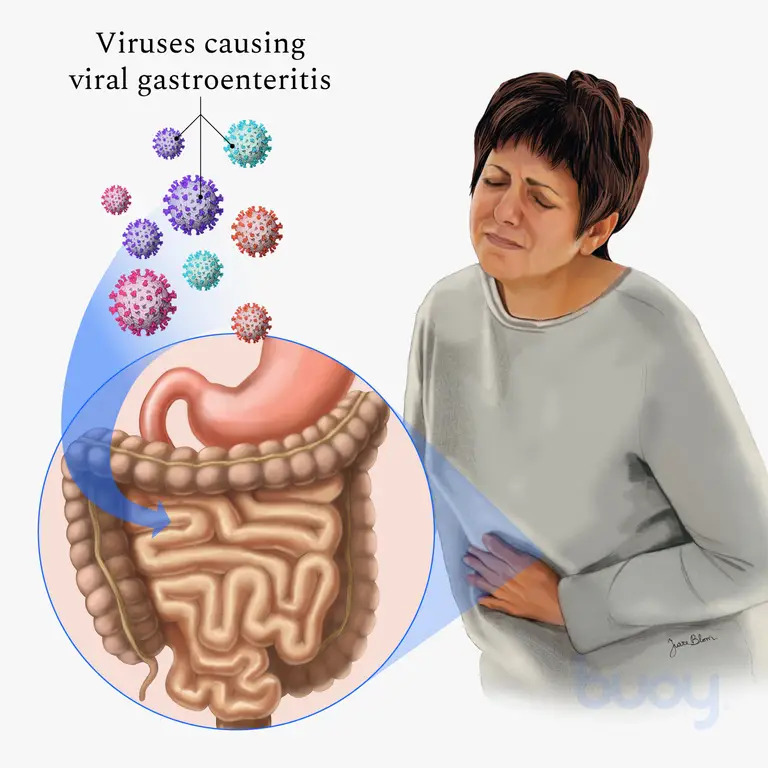What is Stomach Flu (Viral Gastroenteritis)?
Viral gastroenteritis, commonly known as stomach flu, is a contagious intestinal infection caused by viruses. Stomach flu is caused by various viruses and usually develops after coming into contact with an infected person or consuming contaminated food or water.
While the stomach flu can hit some people incredibly hard, most people recover within a few days without any complications. There is no specific treatment for this disease and the infection can usually be left on its own with supportive treatment. Home treatments can improve symptoms and are recommended for anyone thought to be sick.
What Causes Stomach Flu (Viral Gastroenteritis)?
The most common cause of stomach flu is norovirus. In some cases, bacteria and parasites can cause stomach flu. Bacteria usually cause food poisoning, while parasites cause infection.
Although many viruses and bacteria cause similar symptoms, norovirus is highly contagious and difficult to recover from. Usually stomach flu lasts for 1 to 3 days. In some people, diarrhea can even last for 10 days. There are also different viruses that cause viral gastroenteritis.
These:
-
Norovirus:
It is a virus that is transmitted in schools and on cruises. Norovirus is transmitted through food and drink but is not considered food poisoning. It is usually seen in winter. Vomiting and diarrhea may continue for 3 days.
-
Rotavirus:
It is the most common virus that causes diarrhea in infants and children. Young children with weakened immune systems are more at risk. This disease can be protected with the rotavirus vaccine.
-
Astrovirus:
It is usually seen in the winter months and the risk of transmission to children is higher. People who get the astrovirus in their body may feel sick for 4 days. However, it does not cause a disease as severe as norovirus and rotavirus.
-
Adenovirus:
It causes many diseases, including viral gastroenteritis. Although adenovirus infection is more common in children younger than 2 years of age, it can also occur in older children and adults. It can take between 1 and 2 weeks, making you sick longer than other viruses. It is more common in summer.
What are the Symptoms of Stomach Flu (Viral Gastroenteritis)?
Although often referred to as the stomach flu or stomach flu, viral gastroenteritis has different characteristics from the flu. The flu affects only the respiratory system, such as the nose, throat and lungs.
On the other hand, in stomach flu, viruses attack the digestive system and cause symptoms such as:
- Watery Diarrhea
- Stomach ache
- Abdominal Cramps
- Mild Fever
- Sometimes Muscle and Headache
Depending on the cause, stomach flu symptoms can appear within one to three days after infection and can be mild or severe. People usually begin to experience symptoms 12-48 hours after exposure to the virus.
Symptoms usually only last a day or two, but in severe cases they can sometimes last up to 10 days.
Because the symptoms are similar, it’s easy to confuse viral diarrhea with diarrhea caused by bacteria such as Clostridium difficile, salmonella, and E. coli, or by parasites such as giardia.
A doctor should be consulted if the following symptoms are observed:
- Complaint of vomiting for more than two days
- Vomiting blood
- Fluid deficiency in the body: Symptoms of fluid deficit include extreme thirst, dry mouth, dizziness, severe weakness, dark yellow urine, decreased urine output or not being able to urinate at all.
- Blood in stool
- Fever over 40 degrees
In children, if the following symptoms are observed, a doctor should be consulted immediately:
- Fever of 38.9 °C or higher
- Drowsiness or irritability
- Too much discomfort or pain
- Bloody diarrhea
- Dehydration of the body: Estimation can be made by comparing the frequency of urination and the amount of fluid taken.
It is necessary to consult a doctor immediately if infants have:
- Vomiting lasting more than a few hours
- If he hasn’t wet his diaper for six hours
- Bloody stools or severe diarrhea
- If the fontanelle has collapsed
- If you have a dry mouth or no tears when crying
- Is unusually sleepy or unresponsive
Anyone with stomach flu symptoms should not go to school or work. Thus, the spread of the disease is prevented and at the same time the recovery time of the patient is shortened.
Who Gets Stomach Flu (Viral Gastroenteritis)?
Stomach Flu occurs in people of all ages, genders and races.
But people who may be more susceptible to gastroenteritis include:
-
Little Children:
Children in daycare centers or primary schools are vulnerable. Children’s immune systems take time to mature.
-
Elderly:
Adults’ immune systems weaken later in life. Especially the elderly in nursing homes have a high risk of disease because their immune systems are weak and close contact is intense.
-
Those with Weak Immune System:
If the body’s resistance to infection is low, if the immune system is suppressed by HIV-AIDS, chemotherapy or another medical condition, there is a risk of this problem, like all diseases.
Every gastrointestinal virus has a season when it is most active. Some reasons, especially in the hot summer months, pave the way for the emergence of this problem.
How is Stomach Flu (Viral Gastroenteritis) Diagnosed?
The specialist can make a diagnosis based on the patient’s complaints, physical examination and, in some cases, the existence of similar cases in the community. Virus detection can be made after a quick stool test.
But there is no rapid test for other viruses that cause gastroenteritis. Sometimes a stool sample is taken and examined in the laboratory to rule out a possible bacterial or parasitic infection.
How is Stomach Flu (Viral Gastroenteritis) Treated?
Although medical treatment is not usually required for stomach flu, some people may experience dehydration due to excessive vomiting and diarrhea. Babies, children, the elderly and people with weak immune systems are at risk for thirst from stomach flu. More than one treatment may be needed, depending on how bad the symptoms are.
No matter how irritating it is, the body tries to expel the virus or bacteria with diarrhea and vomiting. Taking medication to stop this process can make the disease worse. If you are concerned about your child vomiting and diarrhoea, you should talk to a pediatrician about the best treatment option.
Over-the-counter drugs that stop nausea and diarrhea are available in pharmacies. However, do not consume these drugs without consulting your doctor. Do not forget that unconsciously consumed drugs can cause different health problems.
How is Stomach Flu (Viral Gastroenteritis) Passed?
There are some practices to reduce the symptoms of stomach flu and to help it heal.
Some of these are listed as follows:
-
Plenty of Fluid Intake:
During the disease, excessive sweating, diarrhea and vomiting, and a large amount of water is lost. Drinking plenty of water is vital.
-
Rest:
The body needs rest so that the body can recover quickly. It is necessary to reduce the activity during the day and get plenty of sleep. Damage to cells is repaired faster.
-
Avoiding Certain Foods:
The person should stay away from caffeine, alcohol, nicotine, and excessively fatty foods until they feel better.
What is Good For Stomach Flu (Viral Gastroenteritis)?
It can be difficult to keep the nutrients in the body after nausea and vomiting caused by this problem. Just the thought of food can cause nausea. You should continue to eat simple foods.
Banana, rice, apple-mashed potatoes and toast (BRAT diet) can be consumed.
These four foods are easy to digest and contain carbohydrates that will provide energy.
-
Banana:
Banana is easy to digest, it replaces the potassium lost with vomiting and diarrhea and strengthens the stomach lining.
-
Rice:
White rice is easy to process by your body and its rich carbohydrate content provides energy. However, brown rice contains a lot of fiber and can cause extra gas.
-
Apple Puree:
Applesauce provides an energy boost thanks to carbohydrates and sugar, and contains pectin, which can cause diarrhea. It is also easy to digest.
-
Toast:
White bread, which is easy to digest, should be preferred instead of whole wheat bread, which is difficult to digest due to its fibrous structure.
Turkish coffee with lemon can be consumed, provided that it is not overdone.
It is good to apply hot water to the abdomen for stomach cold. Hot water bag reduces complaints.

